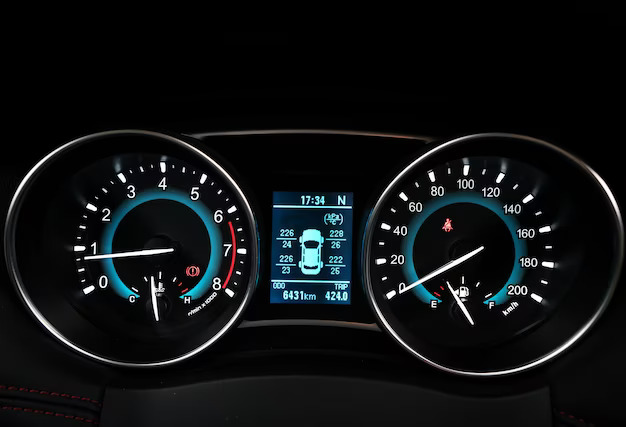In recent years, automotive technology has advanced significantly to enhance safety on the road. One such innovation is the adaptive brake lights system, which goes beyond traditional brake lights by providing additional information to other drivers. Understanding the purpose and function of adaptive brake lights, as well as the associated warning lights, is crucial for both drivers and road users. In this article, we will explore the concept of adaptive brake lights and shed light on the warning lights associated with this feature.
What Are Adaptive Brake Lights?
Adaptive brake lights, also known as intelligent brake lights or emergency brake lights, are a safety feature designed to improve communication between drivers. While conventional brake lights simply indicate that a vehicle is slowing down or coming to a stop, adaptive brake lights provide more detailed information. These lights automatically adjust their intensity or flashing patterns based on the braking force applied by the driver.
How Do Adaptive Brake Lights Work?
Adaptive brake lights work by utilizing sensors or systems within the vehicle to detect the rate at which the brakes are applied. When the driver applies the brakes more forcefully, such as during an emergency stop or a sudden deceleration, the adaptive brake lights respond by increasing their intensity or flashing more rapidly. This additional information helps other drivers behind to better gauge the severity of the braking action and adjust their own driving accordingly.
Importance of Adaptive Brake Lights:
- Enhanced Communication: Adaptive brake lights improve communication between drivers on the road. By providing more precise information about the braking action, they help reduce reaction times and minimize the risk of rear-end collisions. This feature is particularly valuable in situations where the driver may need to apply the brakes suddenly or more forcefully.
- Increased Visibility: The adaptive nature of these brake lights increases their visibility to other road users. The heightened intensity or flashing patterns attract more attention, especially in low visibility conditions, allowing drivers to better anticipate and respond to sudden braking events.
- Improved Traffic Flow: By providing clearer information about the braking intentions of the vehicle ahead, adaptive brake lights can contribute to smoother traffic flow. Other drivers have a better understanding of the braking situation and can adjust their own speed and following distance accordingly, helping to reduce congestion and improve overall safety on the road.
Adaptive Brake Lights Warning Lights:
While adaptive brake lights are a valuable safety feature, it’s important to understand that they may also come with warning lights that could indicate potential issues. These warning lights may vary depending on the vehicle make and model, but common indicators include:
- Adaptive Brake Lights Malfunction: If there is a malfunction in the adaptive brake lights system, a warning light may illuminate on the dashboard. This could indicate a sensor or system failure, electrical issue, or a problem with the adaptive brake lights module. It’s recommended to consult the vehicle’s owner’s manual or seek professional assistance to diagnose and rectify the problem.
- General Brake System Warning Light: In some cases, a warning light associated with the general brake system may also indicate a potential issue with the adaptive brake lights. This could be due to a shared component or electrical connectivity between the adaptive brake lights and the overall brake system. Proper diagnosis and inspection of the braking system by a qualified mechanic are necessary to determine the exact cause of the warning light.
Adaptive brake lights are an important safety feature that enhances communication and visibility on the road. By providing additional information to other drivers, they contribute to safer driving conditions and help prevent rear-end collisions. Understanding the purpose and function of adaptive brake lights, as well as the associated warning lights, allows drivers to make full use of this feature and address any potential malfunctions promptly. As always, consult the vehicle’s owner’s manual or seek professional assistance to diagnose and rectify any warning lights or issues related to the adaptive brake lights system.











